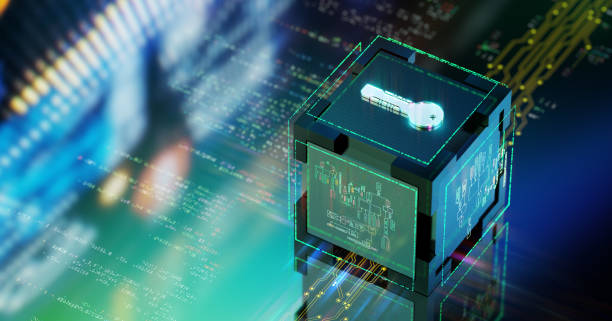Quantum computing can change several fields but perhaps none much more so than cybersecurity and data privacy. Quantum computers will unquestionably provide unparalleled computing power though they’ll also challenge cryptographic methods which presently safeguard a lot of the world’s data. This new technology, together with a quantum internet – a worldwide network where information is transmitted based on quantum mechanics – might fundamentally alter the electronic era regulation of security and information privacy.
Quantum computers apply quantum mechanics and use qubits (quantum bits) rather than classical bits for calculations. This enables quantum computers to process data several times quicker compared to the current fastest supercomputers. Activities which traditional computer systems would take years or centuries to complete would take minutes or hours on quantum computers. Such exceptional computational power promises breakthroughs in medicine, logistics and artificial intelligence but additionally, it challenges existing encryption strategies.
Most contemporary internet security utilizes classical cryptography, especially public key encryption systems like RSA along with elliptic curve cryptography (ECC). These systems depend on the computational difficulty of some mathematical issues like factoring big numbers or even solving discrete logarithms. Where traditional computers would require a long time to crack these cryptographic keys, quantum computers making use of algorithms like Shor’s algorithm could crack them in less than a second. A sufficiently powerful quantum computer could theoretically decrypt anything from money transfer transactions to classified government communications.
Quantum computers breaking encryption protocols has caused what several experts call the “quantum threat.” In case quantum computers were powerful enough and easily accessible enough, a lot of the world’s information – including sensitive personal, governmental and corporate info – will be attacked. This includes data stored and encrypted today because malicious actors might extract encrypted data now and decrypt it later on when quantum computers become available – a strategy referred to as “store now decrypt later.”
In order to fight this imminent threat, scientists are developing “quantum-safe” or “post-quantum” cryptography – new cryptographic algorithms resistant to quantum attacks. These algorithms use mathematical problems which even quantum computer systems think are not possible to resolve. Businesses like NIST are evaluating and standardizing these quantum resistant cryptographic techniques to guarantee a secure future in the quantum age. It will be a substantial and difficult transition to post-quantum cryptography however, requiring major changes to the web and worldwide communications infrastructure.
A quantum internet might provide brand new, groundbreaking ways of information protection along with post-quantum cryptography. A quantum internet would utilize the quantum entanglement and quantum key distribution (QKD) concepts to make sure information transmission safely. Particularly QKD is considered one of the most promising developments in data security. It enables two parties to share encryption keys using quantum particles (photons) properties. Any effort to intercept and eavesdrop on the transmission might disturb the quantum status of the particles and also alert both of the breaches. This renders quantum communication hypothetically immune to interception since eavesdropping would be detectable in real time.
Compared with classical encryption methods that employ mathematical complexity, quantum encryption utilizes the laws of physics itself. This helps explain the reason QKD is in theory considered “unhackable,” as it’s not subjected to the same type of holes which quantum computers exploit in classical cryptography. Some early quantum networks are operating, for example in China where a protected quantum communication network covers several thousand kilometers. These networks are in their beginning stages however the possibilities for secure worldwide quantum communication networks are increasing.
However, quantum key distribution isn’t without difficulties and it provides exciting possibilities for securing communications. Building a scalable useful quantum internet infrastructure calls for quantum repeaters, error correction and quantum memory – all areas of intensive research these days. Quantum networks will also initially be restricted in distance and speed as opposed to classical communication networks, and can therefore for a time occur along with classical networks instead of totally replacing them.
Moreover, the quantum computers and the quantum internet pose ethical and regulatory concerns concerning privacy. Just as encryption and protection protocols are now being redefined, the balance of power around who manages these quantum technologies will need being controlled. Governments, corporations and malicious actors might all seek to exploit quantum computing capabilities for bad or good. This might spark brand new arms races in cyber war or business espionage where quantum technology is a strategic advantage. International norms, laws and cooperations are required to stop misuse of quantum computing and spread its benefits.
To sum up, quantum computing and the quantum internet will rewrite the laws of cybersecurity and data privacy. While quantum computers threaten classical cryptographic systems, quantum safe cryptography and quantum key distribution promise new ways to protect digital communications. Governments, researchers and corporations must create and use the technologies to move to a quantum secure internet. As these developments become apparent, the challenge is how to leverage quantum computing for security without compromise of equitable, ethics, and privacy access.

